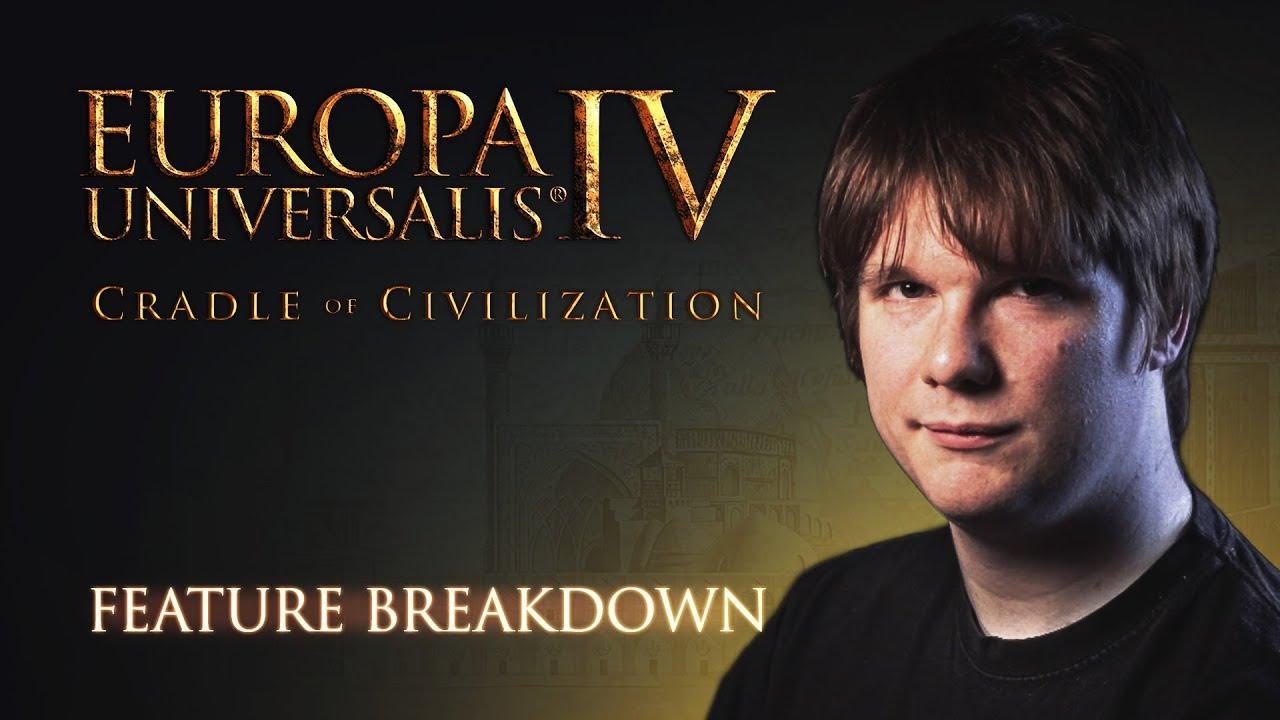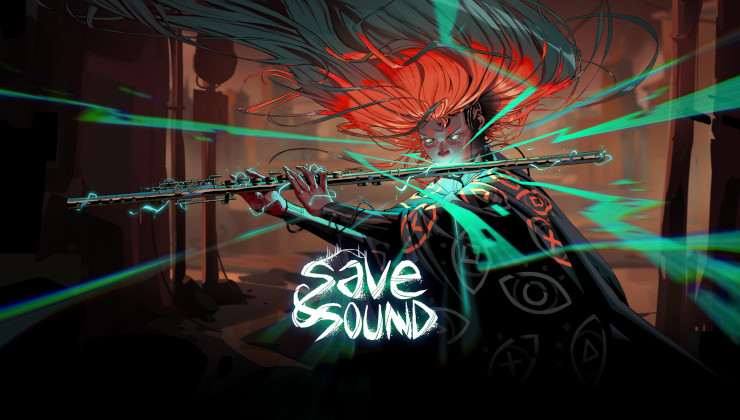Two of Paradox Development Studios’ grand strategy titles will be getting more content come November 16. Jade Dragon and Cradle of Civilization promise to change up important regions of each title.

Direct Link
As you can see in the above video, Europa Universalis IV: Cradle of Civilizaiton, will be bringing many changes to the Islamic nations of the time period as well as the Middle East in general. It’s one of the larger pieces of DLC that PDS have put out for EU4 in a while and it’ll also be coming with a rather sizable patch and features that will be available to all players of the game. You can see a more complete overview of all of that here.
Crusader Kings II’s expansion, on the other hand, will be centered more around China and its important influence on trade and the stability of the Central Asian region. While China won’t be added on-map (much to the delight and disappointment to equal parts of the fanbase), players will be able to curry favor and seek influence in the Chinese court. Occasional instability in China or a strong expansionist mood can make lives miserable for players as deposed warlords or expeditions sent by the emperor can upend the political situation dramatically.
Below are some of Jade Dragon’s features:
- The Further East: A new “China Screen” lays out the status and desires of the Emperor of China, letting you keep tabs on what he wants and how to earn his grace
- An Eventful History: Random events tip you off to major happenings in distant Cathay, letting you know when the Middle Kingdom might be shifting its center of gravity
- Taoism: A Chinese religion that gives bonuses to stewardship, but spreads very slowly.
- New Asian Tributary System: Submit to the Empire as a tributary, always keeping an eye on the waning power of the Emperor, so you can time your escape to freedom
- Ambitious Adventurers: Disgruntled princes or curious adventurers may leave China to seek their own fortune to the west.
- Amazing Riches: Collect wondrous new Chinese artifacts for your characters, and a new Silk Road system that adjusts returns based on China’s stability.
- Chinese Characters: New Chinese and Tibetan portraits and Chinese units bring the empire to life
- Eight New Casus Bellis: Fight!
You can also see the free changes in the accompanying patch through the development diaries.
Both Cradle of Civilization and Jade Dragon will be releasing November 16th, so it’ll be a busy day for grand strategy fans.
Quoting: ColomboSo A can be both "true" and "false" at the same time, depending on assumptions of other people. If person X consider A to be true, than A|X = TRUE. If Y consider it false, then A|Y = FALSE. Obviously, from this example, A can be both true or false. You will get global answer if you integrate through all people: A| \int_\Omega.Y'know, strange as it is to say, I actually understand your point now. Thanks for clarifying. I don't AGREE with your assumption that continuing support is somehow part of the initial price of the game, and I doubt more than a tiny fraction of other people do, but I can see now it's pointless debating it further, so I bid you a good day sir.
Quoteand I doubt more than a tiny fraction of other people do
You can doubt that, but you will be wholly incorrect to think it is only tiny fraction of people.
Lets make a small mental exercise, a model if you like:
Assume game from dev who will provide post-release support
1. Game is released, there are some bugs. Lets name perceived value at this state X_release
2. You know that game will be patched and bugs corrected, maybe a subsystem or two reworked a bit and improved. Lets name perceived value after all the bug fixing as X_supported. Assume that X_release < X_supported.
3. Knowing that game will be supported after release, you can count with X_supported instead of X_release. So you can check your perceived value of game X_supported * company_trust against game price and decide if the game is worth it for the price.
Note that company_trust is how trustworthy is the company to get into X_supported.
Thus: If X_supported * company_trust > game_price => buy_game, otherwise no_buy
As we previously stated, X_release > X_supported. So if what you say is true:
X_release < game_price => buy_game, otherwise don't_buy
Which means that the X_release perceived value must be sufficient.
It is now obvious that the difference X_supported - X_release * company_trust is important. If X_release < game_price, but X_supported * company_trust > game_price, you wouldn't buy game without trusting company to fix it.
Now, you can look at Paradox games and compare how well received are those in main series (EU, HoI, lately CK and Vic a bit as well) vs their other titles (march of eagels, the japanese one, EU:Rome). Even when they are from the same company, people just did not trust Paradox enough to buy into those knowing that Paradox won't support them for long, unlike EU, HoI and Vic. While traditionally, while EU1,2,3 and HoI1,2 were often released in kind of beta-state and paradox was accused to overload QA to players, people bought into them because Paradox eventually fixed it and reworked even non-functional concepts.
Quoting: RutineAwesome to hear. Guess I can give them a positive review again (didn't give them a negative one but I removed my positive one some time ago due to multiplayer issues since I was already conflicted before) :)Quoting: Lakorta-Broken crossplatform multiplayer
-Broken hotjoin
Ok, those don't affect me, because I only do singleplayer.
By the way, they just posted this : [url=https://forum.paradoxplaza.com/forum/index.php?threads/eu4-development-diary-31st-of-october-2017.1052692/]
What they say in the end, if you don't want to read all the post :
"tl;dr: A lot of work on multiplayer has been done, and it will continue. Cross Platform, Cross DLC, and Hotjoin should now be working. Reporting your desyncs might get them fixed faster. If you guys have any questions or suggestions I’d be glad to discuss in this thread."
Quoting: ColomboYeah, in retrospect that was an unwarranted assumption on my part out of pique, and I apologize.Quoteand I doubt more than a tiny fraction of other people do
You can doubt that, but you will be wholly incorrect to think it is only tiny fraction of people.
Quoting: ColomboAs we previously stated, X_release > X_supported. So if what you say is true:Yes? If a game's not in a state I think I'll enjoy at the moment I buy it, no sale. I'm not going to bank on it changing in the future. If it does, great; more bonus for me. If not, I got exactly what I expected to get.
X_release < game_price => buy_game, otherwise don't_buy
Which means that the X_release perceived value must be sufficient.
Quoting: ColomboYes? If a game's not in a state I think I'll enjoy at the moment I buy it, no sale. I'm not going to bank on it changing in the future. If it does, great; more bonus for me. If not, I got exactly what I expected to get.
Good for you, but this isn't the case for majority of people. Why I am so sure about this assumptions? Just look at the damn gaming in past years!
Kickstarter, early access, people praising active devs that respond to people and fix stuff constantly. Steam reviews.
Kickstarter is the best example, because it basically set X_current = 0 (since release is a bad descriptor) and it all depends on perceived value after some time T multiplied by trust in dev.
Early access is in similar state. Just listen to people buying into half-finished game which promised continuous update and then look at how review trashed after dev stopped updating stuff for a while and look at forum of that game to see all the complains.
Or just look how important is reputation of dev studios.
*and had, on the whole, a pretty good success rate with it with a few games I've backed already out (Rain World, Reassembly) and a few more in active development and quite fun to play right now (Parkitect, RimWorld), but one or two in…"indefinite development" have soured me a bit on the idea.







Oh and the name doesn't mean anything but coincidentally could be pronounced as "Buttery" which suits me just fine.
See more from me